– By Samraddhi Saxena
– Intern IPPCS’21
Abstract
The purpose of this analysis is to assess whether foreign diplomats are appropriately protected under international law. Due to the development in new forms of common transnational crime, the security of foreign diplomats has become increasingly prominent. There have been numerous kidnappings, assassinations, and other brutal assaults on the lives of foreign officials in various parts of the world. It has become more widespread, posing a severe threat to international relations as a whole. As a result, different conventions and Treaties had set forth rules that grant immunity and ensure the protection of foreign diplomats during transports, official meetings, functions, stays, and many more.
Introduction
Foreign officials are responsible for the development, formulation, and implementation of a country’s policy. They ensure a diplomatic presence in foreign nations representing their country’s policy. They have been regarded as crucial individuals in formulating relations between the countries. The diplomatic institution has long been considered to be critical to the smooth operation of international relations. Because of the nature of the work that foreign officials do, they are granted immunity. They are granted exemption from specific procedures and laws of the country in which they are present due to their work, allowing them to execute their tasks without being hampered by regional and cultural variations. Local courts do not have authority over foreign authorities. Immunity is granted in both civil and criminal courts, as well as in administrative proceedings.
Private International Law
When domestic law of various countries clashes over private transactions, Private International Law controls the choice of law to use. The term “conflict of laws” is occasionally used to describe it. The extent of private international law differs from one country to the next, and each jurisdiction has its own set of rules. However, the exercise of a court’s personal authority over a particular partner and the enforcement of any judgement that goes beyond the nation’s power under which it was entered is also covered by private international law.
Foreign Officials or Diplomatic Agents
Diplomatic agents or foreign officials are individuals granted the task of fulfilling negotiation and finding a diplomatic achievement for the sending and receiving country. The chief of the mission or a member of the foreign embassies of the mission is referred to as a “diplomatic agent.” Diplomatic agents/foreign officials are those who serve as representatives of their respective governments in foreign countries.
Article 14 of the 1961 Vienna Convention on Diplomatic Relations separates diplomatic agents into three classes, namely;
- Ambassadors accredited to head of State.
- Envoys, ministers accredited to the head of State.
- Charges d’ Affairs accredited to Ministers of Foreign Affairs.
The operations of diplomatic agents are divided into six categories by the Convention. They are: representing the sending State in the receiving State; protecting the sending State’s and its nationals’ interests in the receiving State, within the bounds of international law; Negotiating with the receiving State’s government; determining the conditions and developments in the receiving State using all legal means, and reporting to the sending State’s government; Promoting and fostering cordial relations between the sending and receiving countries, as well as their economic, cultural, and scientific ties.
Protection of Foreign Officials under Private International Law
Long before international agreements codified the need of the receiving State to safeguard diplomatic agents, Roman law recognized the obligation of the State to take all necessary means to ensure the safety of the foreign representative.
Foreign officials will be afforded greater security by the country to which they are dispatched. This extra attention can be achieved by implementing appropriate procedures, which may vary from State to State. This usually begins with taking proactive actions to guarantee the safety of officials, such as warning officials of any danger or attack that could put them in danger, as well as regular police inspection of the environment and other similar procedures.
Diplomats are granted special privileges and immunities by the Vienna Convention on Diplomatic Relations of 1961. They must carry their official tasks without interference or limitations from the outside world. The Vienna Convention established international law’s norms on diplomatic relations, privileges, and immunities (Immunity, Diplomatic) Which are granted to the diplomatic envoys or agents. Accordingly, Article 22 established a customary norm of international law that “the mission premises should be inviolable.” Similarly, The diplomatic agent has inviolability immunity under Article 29 Of the agreement. The treaty declares the mission’s documents and archives and its official communications and private home, private communication, and property of the diplomatic agent to be inviolable.
The Vienna Convention and the Convention on Special Missions both say unequivocally that the receiving State is responsible for protecting foreign officials, stating that the receiving state “must take all appropriate actions to avoid any attack on their persons, freedom, or dignity.” As a result, diplomatic missions and diplomatic agents are protected on two levels. First, the government must refrain from interfering with the mission’s operations or the diplomatic agent. Second, the receiving State is responsible for ensuring that no one on its territory interferes with the mission’s premises or the diplomatic agent’s person.
The Convention to Avoid and Punish Terrorism in the Form of Crimes Against Persons and Other Forms of International Extortion of International Importance imposes a general obligation on contracting states to work together to prevent kidnappings, murders, and other attacks against foreign officials. “The contracting states collaborate among themselves to prevent and punish acts of terrorism, especially kidnapping, murder, as well as other assaults against the life or physical integrity of those individuals to which the state has a legal duty to ensure under international law,” according to the first article of the Convention. According to article 2 of the Convention on the Prevention and Punishment of Torture, each state party shall make the following acts criminal under its domestic law: (1) a murder, kidnapping, or even another attack on an internationally protected person’s person or liberty; (2) a violent attack on an internationally protected person’s official premises, private lodging, or mode of transportation likely to harm his person or liberty; (3) a threat to commit such an attack; (4) an attempt to commit any such attack; and (5) an act composing participation as an internationally protected person.
It should be highlighted that international law’s special protection covers the security of internationally protected persons and severe penalties for offenders. In terms of the special protection component, it should be underlined that ensuring that States legislate practical consequences for acts committed against internationally protected persons under their municipal legislation is an efficient approach to achieve such protection.
States may enact legislation or make special provisions for foreign officials’ autonomy violations, circumventing penal codes, press freedom laws, and other similar regulations. The internal codification specifies the appropriate penalties for those who commit offences against foreign government personnel. Apart from providing security and police protection to foreign officials, the host state also has a responsibility to provide justice by prosecuting offenders who commit crimes against them. The receiving country may apply special sanctions or heightened punishment for specific misdeeds while punishing offenders who commit such crimes.
Conclusion
Diplomatic immunity is essential for the promotion of amicable and good ties between countries. The Vienna Convention on Diplomatic Relations is often recognized as the foundation of successful international relations. It gives foreign officials the protection they need to perform their obligations as the Head of State’s envoy. Although officials’ rights and privileges are not unconditional, they might be surrendered under specific circumstances.
References
Diva Rai, “Diplomatic Immunity: Everything Important You Should Know About” (iPleaders May 14, 2020) <https://blog.ipleaders.in/diplomatic-immunity-everything-important-you-should-know-about/#:~:text=Diplomatic%20immunity%20is%20a%20rule> accessed September 13, 2021.
Caitlin Hunter, “LibGuides: Private International Law: Introduction” (libguides.law.ucla.edu October 22, 2020) <https://libguides.law.ucla.edu/privateinternational> accessed September 14, 2021.
Ayush Verma, “Public International Law v. Private International Law” (iPleaders August 26, 2020) <https://blog.ipleaders.in/public-international-law-v-private-international-law/> accessed September 14, 2021.
Article 1(e), Vienna Convention on Diplomatic Relations, 1961.
The Vienna Convention on diplomatic relations, 1961.
Article 3, Vienna Convention on Diplomatic Relations, 1961.
Holger P Hestermeyer, “Vienna Convention on Diplomatic Relations (1961),” Max Planck Encyclopedias of International Law [MPIL] (Oxford Public International Law Search 2009).
Article 22, Vienna Convention on Diplomatic Relations, 1961. The premises of the mission shall be inviolable. The agents of the receiving State may not enter them, except with the consent of the head of the task.
Article 29, Vienna Convention on Diplomatic Relations, 1961. The person of a diplomatic agent shall be inviolable. He shall not be liable to any form of arrest or detention. The receiving State shall treat him with due respect and take all appropriate steps to prevent any attack on his person, freedom or dignity.
Franciszek Przetacznik, ‘The Protection of Foreign Officials in the United States code’ (1975) 9 Int’l L 121
Clyde Eagleton, ‘Responsibility of the State for the Protection of Foreign Officials’ (1925) 19 Am J Int’l L 293
Ibid
Franciszek Przetacznik, ‘The Protection of Foreign Officials under International Law’ (1980) 9 Anglo-Am L Rev 177



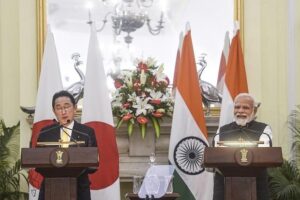

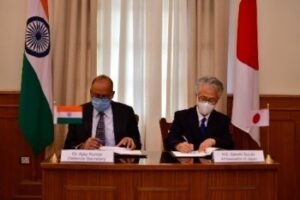
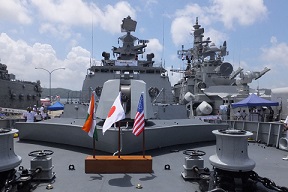
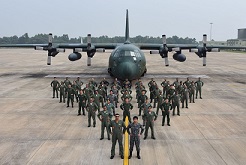



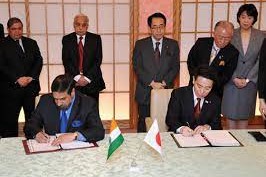

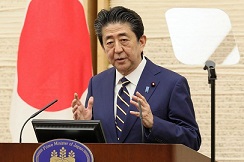
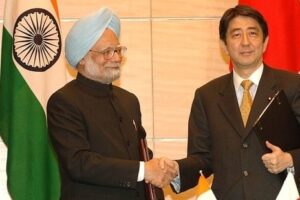

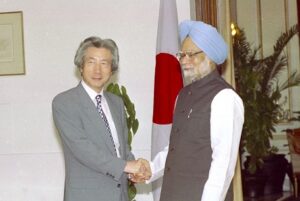

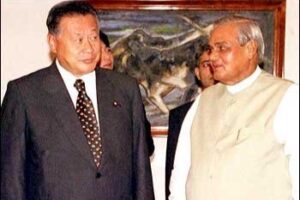





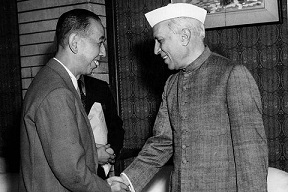
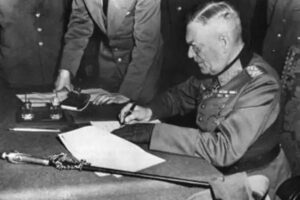


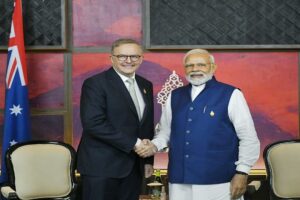


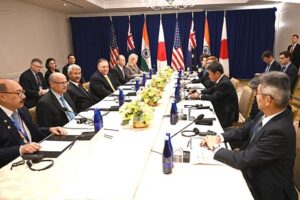



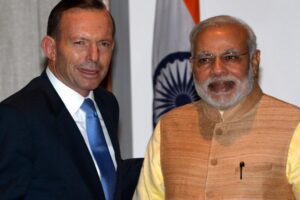
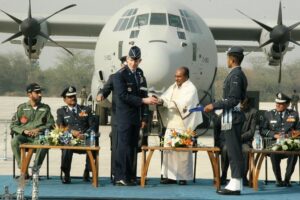




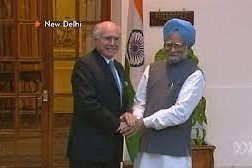





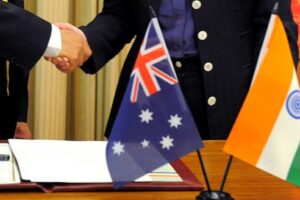
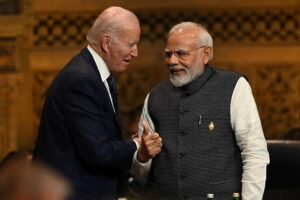

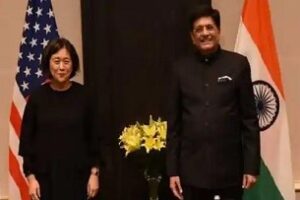
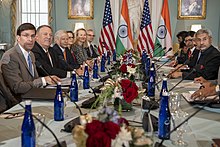

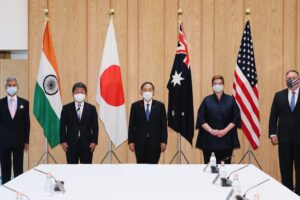
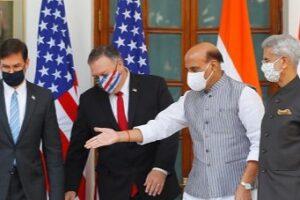
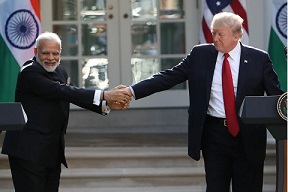
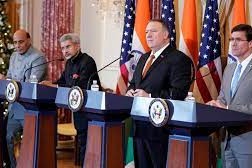

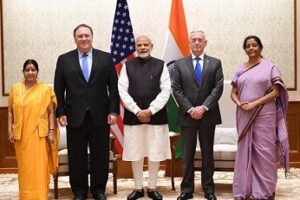
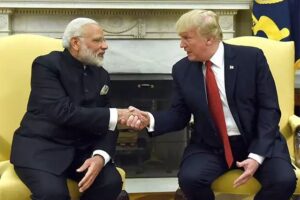
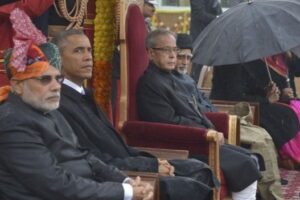
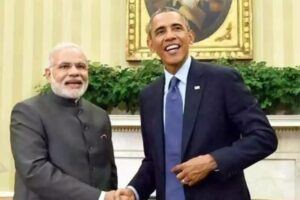
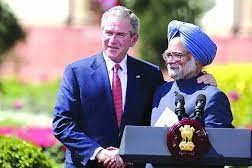
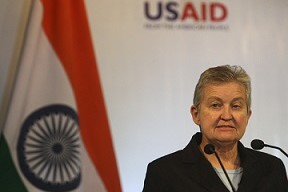
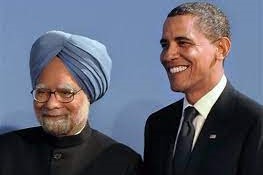
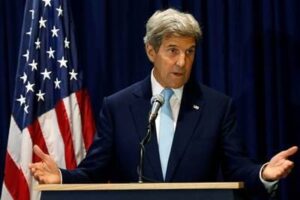
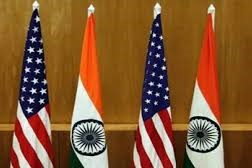
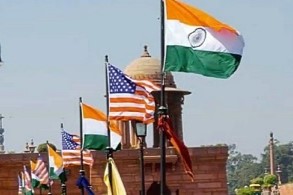
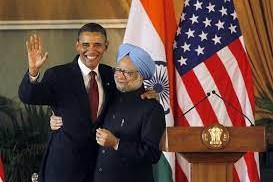
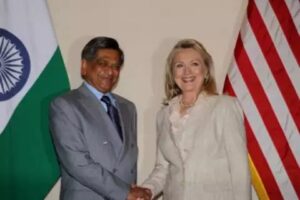
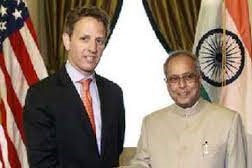
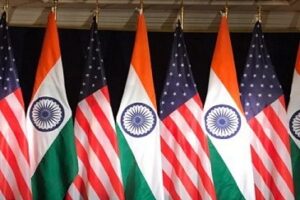
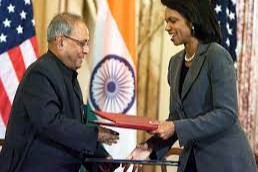

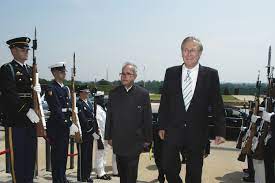


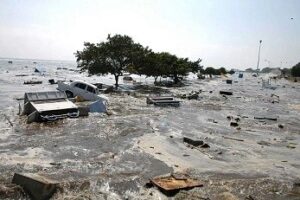

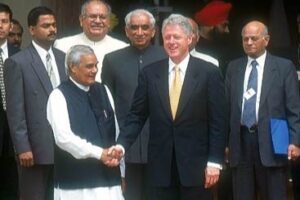


 onducted a total of five underground nuclear tests, breaking a 24-year self-imposed moratorium on nuclear testing. Pakistan followed, claiming 5 tests on May 28, 1998, and an additional test on May 30. The unannounced tests created a global storm of criticism, as well as a serious setback for decades of U.S. nuclear nonproliferation efforts in South Asia. On May 13, 1998, President Clinton imposed economic and military sanctions on India, mandated by Section 102 of the Arms Export Control Act (AECA), and applied the same sanctions to Pakistan on May 30. Some effects of the sanctions on India included: termination of $21 million in FY1998 economic development assistance; postponement of $1.7 billion in lending by the International Financial Institutions (IFI), as supported by the Group of Eight (G-8) leading industrial nations; prohibition on loans or credit from U.S. banks to the government of India; and termination of Foreign Military Sales under the Arms Export Control Act. Humanitarian assistance, food, or other agricultural commodities are excepted from sanctions under the law.
onducted a total of five underground nuclear tests, breaking a 24-year self-imposed moratorium on nuclear testing. Pakistan followed, claiming 5 tests on May 28, 1998, and an additional test on May 30. The unannounced tests created a global storm of criticism, as well as a serious setback for decades of U.S. nuclear nonproliferation efforts in South Asia. On May 13, 1998, President Clinton imposed economic and military sanctions on India, mandated by Section 102 of the Arms Export Control Act (AECA), and applied the same sanctions to Pakistan on May 30. Some effects of the sanctions on India included: termination of $21 million in FY1998 economic development assistance; postponement of $1.7 billion in lending by the International Financial Institutions (IFI), as supported by the Group of Eight (G-8) leading industrial nations; prohibition on loans or credit from U.S. banks to the government of India; and termination of Foreign Military Sales under the Arms Export Control Act. Humanitarian assistance, food, or other agricultural commodities are excepted from sanctions under the law. 
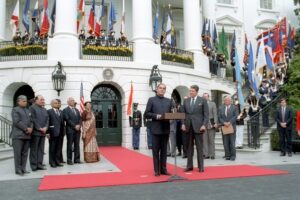



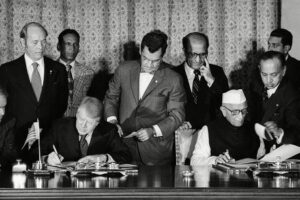
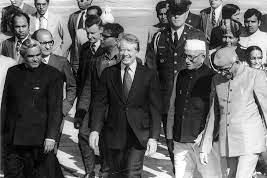

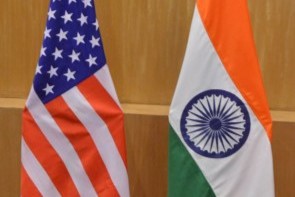



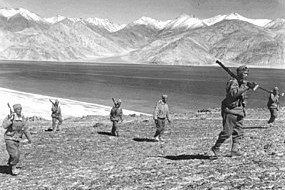

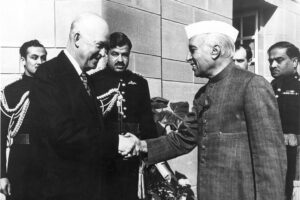

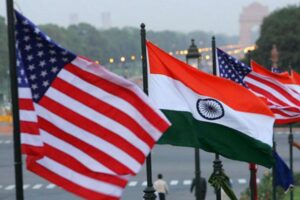
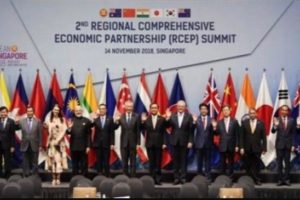 The first ministerial level meeting of QUAD was held on the sidelines of the United Nations General Assembly in New York. Before this, the QUAD had
The first ministerial level meeting of QUAD was held on the sidelines of the United Nations General Assembly in New York. Before this, the QUAD had AusIndEx is an exercise between India and Australia which was first held in 2015.The Australian
AusIndEx is an exercise between India and Australia which was first held in 2015.The Australian 
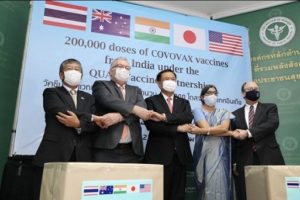
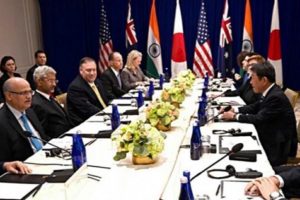

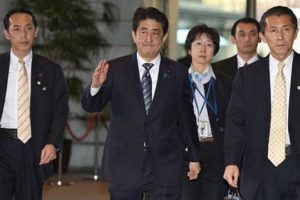



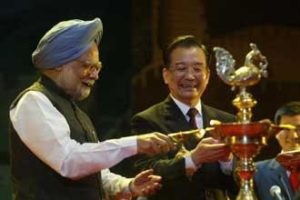 On recommendations of the Japanese government, the four countries met at Manila, Philippines for ASEAN Regional Forum (ARF) originally, but also ended up having a meeting of what we call the first meeting of four nation states on issues of
On recommendations of the Japanese government, the four countries met at Manila, Philippines for ASEAN Regional Forum (ARF) originally, but also ended up having a meeting of what we call the first meeting of four nation states on issues of 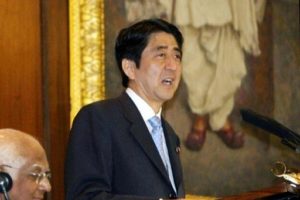 On his official visit to India, Japanese PM Mr. Shinzo Abe reinforced the ties of two nations, i.e., Japan and India with his famous speech about
On his official visit to India, Japanese PM Mr. Shinzo Abe reinforced the ties of two nations, i.e., Japan and India with his famous speech about 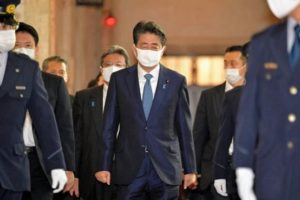 In 2007, Japanese President Shinzo Abe resigned from his post citing health reasons. This had a significant impact on QUAD as he was the architect & advocate of QUAD. His successor, Yasuo Fukuda, did not take up QUAD with such zeal leading to dormancy of the forum. (
In 2007, Japanese President Shinzo Abe resigned from his post citing health reasons. This had a significant impact on QUAD as he was the architect & advocate of QUAD. His successor, Yasuo Fukuda, did not take up QUAD with such zeal leading to dormancy of the forum. ( Japan earthquake and tsunami of 2011, also called Great Sendai Earthquake or Great Tōhoku Earthquake, was a 9.0 magnitude earthquake which struck below the floor of the Western Pacific at 2:49 PM. The powerful earthquake affected the northeastern coast of Honshu, Japan’s main island, and also initiated a series of large tsunami waves that devastated coastal areas of Japan, which also led to a major nuclear accident. Japan received aid from India, US, Australia as well as other countries. US Navy aircraft carrier was dispatched to the area and Australia sent search-and-rescue teams.
Japan earthquake and tsunami of 2011, also called Great Sendai Earthquake or Great Tōhoku Earthquake, was a 9.0 magnitude earthquake which struck below the floor of the Western Pacific at 2:49 PM. The powerful earthquake affected the northeastern coast of Honshu, Japan’s main island, and also initiated a series of large tsunami waves that devastated coastal areas of Japan, which also led to a major nuclear accident. Japan received aid from India, US, Australia as well as other countries. US Navy aircraft carrier was dispatched to the area and Australia sent search-and-rescue teams. 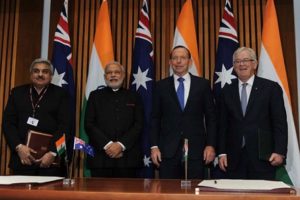 India and Australia signed the
India and Australia signed the 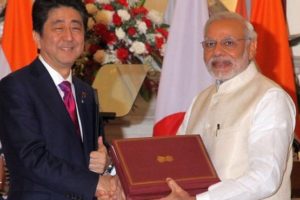 The India-Japan Agreement for Cooperation in the Peaceful Uses of Nuclear Energy was signed on 11 November, 2016 and came into force on 20 July, 2017 which was representative of strengthening ties between India and Japan. Diplomatic notes were exchanged between Dr. S. Jaishankar and H.E. Mr. Kenji Hiramatsu, Ambassador of Japan to India. (
The India-Japan Agreement for Cooperation in the Peaceful Uses of Nuclear Energy was signed on 11 November, 2016 and came into force on 20 July, 2017 which was representative of strengthening ties between India and Japan. Diplomatic notes were exchanged between Dr. S. Jaishankar and H.E. Mr. Kenji Hiramatsu, Ambassador of Japan to India. (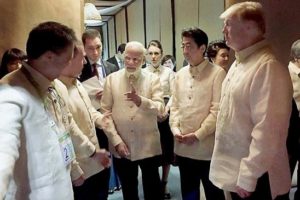 The foreign ministry
The foreign ministry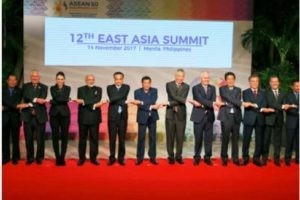 The Officials of QUAD member countries met in Singapore on November 15, 2018 for consultation on regional & global issues of common interest. The main discussion revolved around connectivity, sustainable development, counter-terrorism, maritime and cyber security, with the view to promote peace, stability and prosperity in the
The Officials of QUAD member countries met in Singapore on November 15, 2018 for consultation on regional & global issues of common interest. The main discussion revolved around connectivity, sustainable development, counter-terrorism, maritime and cyber security, with the view to promote peace, stability and prosperity in the  The 23rd edition of trilateral Malabar maritime exercise between India, US and Japan took place on 26 September- 04 October, 2019 off the coast of Japan.
The 23rd edition of trilateral Malabar maritime exercise between India, US and Japan took place on 26 September- 04 October, 2019 off the coast of Japan. 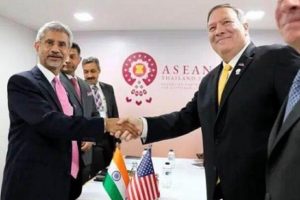 After the first ministerial level meeting of QUAD in September, 2019, the senior officials of US, Japan, India and Australia again met for consultations in Bangkok on the margins of the East Asia Summit. Statements were issued separately by the four countries. Indian Ministry of External Affairs said “In statements issued separately by the four countries, MEA said, “proceeding from the strategic guidance of their Ministers, who met in New York City on the sidelines of the UN General Assembly recently, the officials exchanged views on ongoing and additional practical cooperation in the areas of connectivity and infrastructure development, and security matters, including counterterrorism, cyber and maritime security, with a view to promoting peace, security, stability, prosperity in the Indo-Pacific region.”
After the first ministerial level meeting of QUAD in September, 2019, the senior officials of US, Japan, India and Australia again met for consultations in Bangkok on the margins of the East Asia Summit. Statements were issued separately by the four countries. Indian Ministry of External Affairs said “In statements issued separately by the four countries, MEA said, “proceeding from the strategic guidance of their Ministers, who met in New York City on the sidelines of the UN General Assembly recently, the officials exchanged views on ongoing and additional practical cooperation in the areas of connectivity and infrastructure development, and security matters, including counterterrorism, cyber and maritime security, with a view to promoting peace, security, stability, prosperity in the Indo-Pacific region.”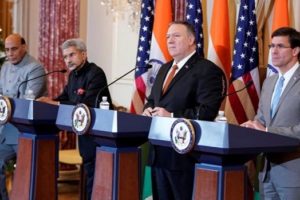 US 2+2 Ministerial Dialogue was held on 18 December, 2019, in Washington DC. Secretary of State Michael R. Pompeo and Secretary of Defense Mark T. Esper will host Indian Minister of External Affairs Dr. S. Jaishankar and Minister of Defense Shri Rajnath Singh. The discussion focussed on deepening bilateral strategic and defense cooperation, exchanging perspectives on global developments, and our shared leadership in the Indo-Pacific region.The two democracies signed the Industrial Security Annex before the 2+2 Dialogue. Assessments of the situation in Afghanistan, Pakistan, Nepal, Sri Lanka, and the Indian Ocean region in general were shared between both countries. (
US 2+2 Ministerial Dialogue was held on 18 December, 2019, in Washington DC. Secretary of State Michael R. Pompeo and Secretary of Defense Mark T. Esper will host Indian Minister of External Affairs Dr. S. Jaishankar and Minister of Defense Shri Rajnath Singh. The discussion focussed on deepening bilateral strategic and defense cooperation, exchanging perspectives on global developments, and our shared leadership in the Indo-Pacific region.The two democracies signed the Industrial Security Annex before the 2+2 Dialogue. Assessments of the situation in Afghanistan, Pakistan, Nepal, Sri Lanka, and the Indian Ocean region in general were shared between both countries. (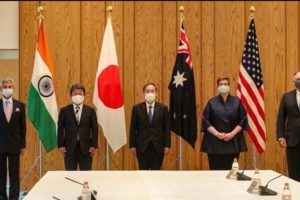 The foreign ministers of QUAD continued their discussions from the last ministerial level meeting in 2019, on 6 October, 2020. While there was no joint statement released, all countries issued individual readouts. As per the issue readout by India, the discussion called for a coordinated response to the challenges including financial problems emanating from the pandemic, best practices to combat Covid-19, increasing the resilience of supply chains, and enhancing access to affordable vaccines, medicines and medical equipment. There was also a focus on maintaining stability in the Indo-Pacific region amidst growing tensions. Australian media release mentions “We emphasised that, especially during a pandemic, it was vital that states work to ease tensions and avoid exacerbating long-standing disputes, work to counter disinformation, and refrain from malicious cyberspace activity. Ministers reiterated that states cannot assert maritime claims that are inconsistent with international law, particularly the United Nations Convention on the Law of the Sea (UNCLOS).”
The foreign ministers of QUAD continued their discussions from the last ministerial level meeting in 2019, on 6 October, 2020. While there was no joint statement released, all countries issued individual readouts. As per the issue readout by India, the discussion called for a coordinated response to the challenges including financial problems emanating from the pandemic, best practices to combat Covid-19, increasing the resilience of supply chains, and enhancing access to affordable vaccines, medicines and medical equipment. There was also a focus on maintaining stability in the Indo-Pacific region amidst growing tensions. Australian media release mentions “We emphasised that, especially during a pandemic, it was vital that states work to ease tensions and avoid exacerbating long-standing disputes, work to counter disinformation, and refrain from malicious cyberspace activity. Ministers reiterated that states cannot assert maritime claims that are inconsistent with international law, particularly the United Nations Convention on the Law of the Sea (UNCLOS).”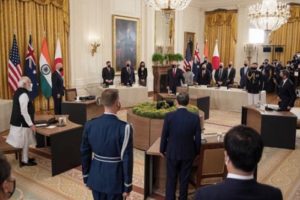 On September 24, President Biden hosted Prime Minister Scott Morrison of Australia, Prime Minister Narendra Modi of India, and Prime Minister Yoshihide Suga of Japan at the White House for the first-ever in-person Leaders’ Summit of the QUAD. The leaders released a Joint Statement which summarised their dialogue and future course of action. The regional security of the Indo-Pacific and strong confidence in the ASEAN remained on the focus along with response to the Pandemic.
On September 24, President Biden hosted Prime Minister Scott Morrison of Australia, Prime Minister Narendra Modi of India, and Prime Minister Yoshihide Suga of Japan at the White House for the first-ever in-person Leaders’ Summit of the QUAD. The leaders released a Joint Statement which summarised their dialogue and future course of action. The regional security of the Indo-Pacific and strong confidence in the ASEAN remained on the focus along with response to the Pandemic. 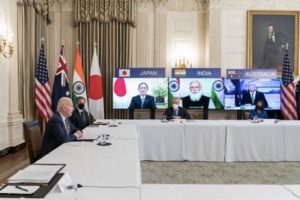 The QUAD Vaccine Partnership was announced at the first QUAD Summit on 12 March 2021 where QUAD countries agreed to deliver 1.2 billion vaccine doses globally. The aim was to expand and finance vaccine manufacturing and equipping the Indo-Pacific to build resilience against Covid-19. The launch of a senior-level QUAD Vaccine Experts Group, comprised of top scientists and officials from all QUAD member governments was also spearheaded.
The QUAD Vaccine Partnership was announced at the first QUAD Summit on 12 March 2021 where QUAD countries agreed to deliver 1.2 billion vaccine doses globally. The aim was to expand and finance vaccine manufacturing and equipping the Indo-Pacific to build resilience against Covid-19. The launch of a senior-level QUAD Vaccine Experts Group, comprised of top scientists and officials from all QUAD member governments was also spearheaded.  Although the Tsunami Core group had to be disbanded on fulfilment of its purpose, however the quadrilateral template that formed remained intact as a successful scaffolding of four countries, as stated by authors Patrick Gerard Buchan and Benjamin Rimland in their diplomatic brief about QUAD ( you can access the brief at
Although the Tsunami Core group had to be disbanded on fulfilment of its purpose, however the quadrilateral template that formed remained intact as a successful scaffolding of four countries, as stated by authors Patrick Gerard Buchan and Benjamin Rimland in their diplomatic brief about QUAD ( you can access the brief at 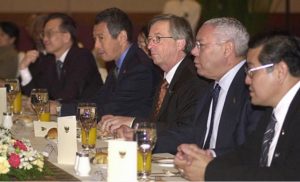 Secretary of State Colin Powell stated that the Core Tsunami Group was to be disbanded and folded and clubbed with the broader United Nations led Relief Operations. In a Tsunami Relief Conference in Jakarta, Secretary Powell stated that
Secretary of State Colin Powell stated that the Core Tsunami Group was to be disbanded and folded and clubbed with the broader United Nations led Relief Operations. In a Tsunami Relief Conference in Jakarta, Secretary Powell stated that 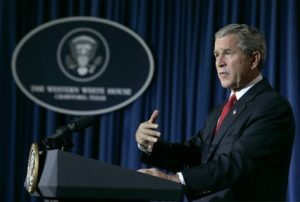 Soon after the Earthquake and Tsunami crisis, humanitarian reliefs by countries, viz., US, India, Japan, and Australia started to help the 13 havoc-stricken countries. The US initially promised $ 35 Millions in aid. However, on 29
Soon after the Earthquake and Tsunami crisis, humanitarian reliefs by countries, viz., US, India, Japan, and Australia started to help the 13 havoc-stricken countries. The US initially promised $ 35 Millions in aid. However, on 29 At 7:59AM local time, an earthquake of 9.1 magnitude (undersea) hit the coast of Sumatra, an Indonesian island. As a result of the same, massive waves of Tsunami triggered by the earthquake wreaked havoc for 7 hours across the Indian Ocean and to the coastal areas as far away as East Africa. The infamous Tsunami killed around 225,000 people, with people reporting the height of waves to be as high as 9 metres, i.e., 30 feet. Indonesia, Srilanka, India, Maldives, Thailand sustained horrendously massive damage, with the death toll exceeding 200,000 in Northern Sumatra’s Ache province alone. A great many people, i.e., around tens of thousands were found dead or missing in Srilanka and India, mostly from Andaman and Nicobar Islands of Indian territory. Maldives, being a low-lying country, also reported casualties in hundreds and more, with several non-Asian tourists reported dead or missing who were vacationing. Lack of food, water, medicines burgeoned the numbers of casualties, with the relief workers finding it difficult to reach the remotest areas where roads were destroyed or civil war raged. Long-term environmental damage ensued too, as both natural and man-made resources got demolished and diminished.
At 7:59AM local time, an earthquake of 9.1 magnitude (undersea) hit the coast of Sumatra, an Indonesian island. As a result of the same, massive waves of Tsunami triggered by the earthquake wreaked havoc for 7 hours across the Indian Ocean and to the coastal areas as far away as East Africa. The infamous Tsunami killed around 225,000 people, with people reporting the height of waves to be as high as 9 metres, i.e., 30 feet. Indonesia, Srilanka, India, Maldives, Thailand sustained horrendously massive damage, with the death toll exceeding 200,000 in Northern Sumatra’s Ache province alone. A great many people, i.e., around tens of thousands were found dead or missing in Srilanka and India, mostly from Andaman and Nicobar Islands of Indian territory. Maldives, being a low-lying country, also reported casualties in hundreds and more, with several non-Asian tourists reported dead or missing who were vacationing. Lack of food, water, medicines burgeoned the numbers of casualties, with the relief workers finding it difficult to reach the remotest areas where roads were destroyed or civil war raged. Long-term environmental damage ensued too, as both natural and man-made resources got demolished and diminished.
No responses yet